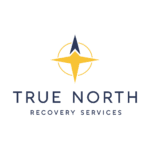Substance addiction affects millions worldwide, disrupting lives and straining relationships. Drug intervention programs serve as a beacon of hope, guiding individuals toward recovery. This article delves into the intricacies of these programs, offering insights into their structure, effectiveness, and the pivotal role of professional interventionists.
What Are Drug Intervention Programs?
Drug intervention programs are structured approaches designed to confront individuals struggling with substance abuse. The primary goal is to motivate them to seek treatment and embrace recovery. These programs often involve family, friends, and professionals collaborating to address the individual’s addiction and its repercussions.
The Importance of Substance Addiction Services
Substance addiction services encompass a range of support mechanisms, including counseling, medical treatment, and aftercare planning. They play a crucial role in addressing both the physical and psychological aspects of addiction, ensuring a holistic approach to recovery.
Types of Drug and Alcohol Intervention Programs
There are various intervention models tailored to meet individual needs:
- Johnson Model: A direct approach where loved ones confront the individual about their addiction.
- Invitational Model: Focuses on inviting the individual to a workshop or meeting without prior confrontation.
- Field Model: Combines elements of the Johnson and Invitational models, adaptable to the situation’s dynamics.
Each model aims to encourage the individual to acknowledge their addiction and seek help.
The Role of a Professional Interventionist
A professional interventionist is a trained specialist who facilitates the intervention process. Their expertise ensures that the intervention is conducted safely and effectively, minimizing potential conflicts. They provide guidance on how to do an intervention, from planning to execution, ensuring that the message is conveyed compassionately and clearly.
Steps to Conducting an Effective Addiction Intervention
- Gather Information: Understand the extent of the individual’s addiction and research treatment options.
- Form the Intervention Team: Assemble a group of people who are significant in the individual’s life.
- Plan the Intervention: Decide on a time and place, and rehearse what will be communicated.
- Set Boundaries and Consequences: Clearly outline the consequences if the individual refuses treatment.
- Hold the Intervention: Confront the individual in a supportive and non-judgmental manner.
- Follow Up: Ensure that the individual follows through with treatment and provide ongoing support.
It’s essential to approach the intervention with empathy, focusing on expressing concern rather than casting blame.
Challenges and Considerations
While interventions can be effective, they come with challenges:
- Resistance: The individual may deny the problem or refuse help.
- Emotional Volatility: Interventions can evoke strong emotions, leading to potential conflicts.
- Relapse: Even after agreeing to treatment, there’s a risk of relapse, necessitating ongoing support.
Engaging a professional interventionist can help navigate these challenges effectively.
True North Recovery Services: Supporting Recovery and Sober Living
At True North Recovery Services, we understand the complexities of addiction and the courage it takes to seek help. Located in the Denver Metro Area, we offer comprehensive outpatient addiction treatment tailored to individual needs. Our approach is rooted in compassion, respect, and unwavering support, addressing both substance use disorders and co-occurring mental health conditions. Our dedicated team collaborates with clients to develop personalized treatment plans, incorporating evidence-based therapies and holistic modalities. Beyond treatment, we provide recovery support services, assisting clients in their journey toward sober living and a fulfilling life. Our mission is to guide individuals away from substance abuse and toward self-discovery, helping them find the aspects of who they were always meant to be.
Drug intervention programs are vital tools in addressing substance addiction, offering structured pathways to recovery. By understanding their components and engaging professional interventionists, families and friends can effectively support their loved ones toward a healthier, sober life.


